Filter by
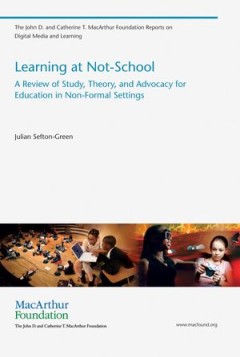
Learning at Not-School : A Review of Study, Theory, and Advocacy for Educatio…
A review of research on “not-school” learning that investigates what is distinctive in the quality of learning in these settings. Schools do not define education, and they are not the only institutions in which learning takes place. After-school programs, music lessons, Scouts, summer camps, on-the-job training, and home activities all offer out-of-school educational experiences. In Learnin…
- Edition
- -
- ISBN/ISSN
- 9780262518246
- Collation
- 100 halaman
- Series Title
- John D. and Catherine T. MacArthur Foundation Reports on Digital Media and Learning
- Call Number
- 370 SEF l
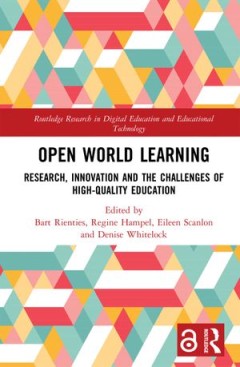
Open World Learning : Research, Innovation and the Challenges of High-Quality…
This book provides state-of-the-art contemporary research insights into key applications and processes in open world learning. Open world learning seeks to understand access to education, structures, and the presence of dialogue and support systems. It explores how the application of open world and educational technologies can be used to create opportunities for open and high-quality education.…
- Edition
- -
- ISBN/ISSN
- 9781003177098
- Collation
- 298 halaman
- Series Title
- -
- Call Number
- 370 OPE
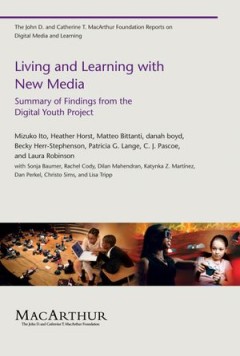
Living and Learning with New Media : Summary of Findings from the Digital You…
This report summarizes the results of an ambitious three-year ethnographic study, funded by the John D. and Catherine T. MacArthur Foundation, into how young people are living and learning with new media in varied settings—at home, in after school programs, and in online spaces. It offers a condensed version of a longer treatment provided in the book Hanging Out, Messing Around, and Geeking O…
- Edition
- -
- ISBN/ISSN
- 9780262513654
- Collation
- 128 halaman
- Series Title
- -
- Call Number
- 302 ITO l
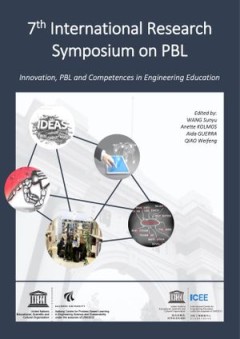
Innovation, PBL and Competences in Engineering Education : 7th International …
Today’s students will perform in a technology-based society and contribute to a global economy. Technologies, like automation, Internet of Things (IoT), artificial intelligence (AI), come with promise of transforming deeply the work places and creating new business models. In addition, the sustainability crises is threatening the future of planet earth and human society. These trends posed ne…
- Edition
- -
- ISBN/ISSN
- 9788772100029
- Collation
- -
- Series Title
- -
- Call Number
- 370 INN
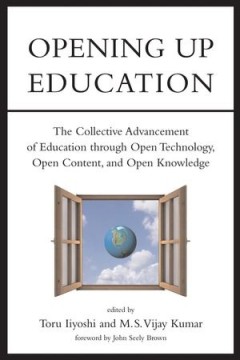
Opening Up Education : The Collective Advancement of Education through Open T…
Experts discuss the potential for open education tools, resources, and knowledge to transform the economics and ecology of education. Given the abundance of open education initiatives that aim to make educational assets freely available online, the time seems ripe to explore the potential of open education to transform the economics and ecology of education. Despite the diversity of tools and r…
- Edition
- -
- ISBN/ISSN
- 9780262033718
- Collation
- 500 halaman
- Series Title
- -
- Call Number
- 370 OPE
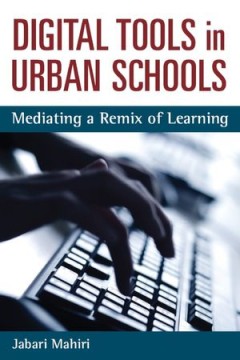
Digital Tools in Urban Schools : Mediating a Remix of Learning
The digital age and the age of hip-hop emerged collaterally during the last 35 years. Increasingly, young people in the United States and globally use screen-based, digital technologies to source and transmit words, images, video, and sounds as they engage in meaning making, identity connections, and social networking. They come to school with experiences, interests, affinities, and skills uniq…
- Edition
- -
- ISBN/ISSN
- 9780472900305
- Collation
- 170 halaman
- Series Title
- -
- Call Number
- 370 MAH d
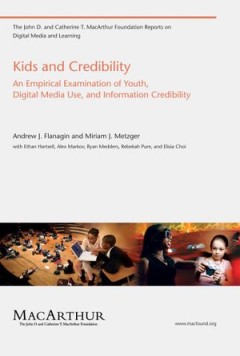
Kids and Credibility : An Empirical Examination of Youth, Digital Media Use, …
Findings from a survey of youthful Internet users that was designed to assess kids' beliefs about the credibility of online information. How well do children navigate the ocean of information that is available online? The enormous variety of Web-based resources represents both opportunities and challenges for Internet-savvy kids, offering extraordinary potential for learning and social connecti…
- Edition
- -
- ISBN/ISSN
- 9780262514750
- Collation
- 154 halaman
- Series Title
- -
- Call Number
- 302 FLA k
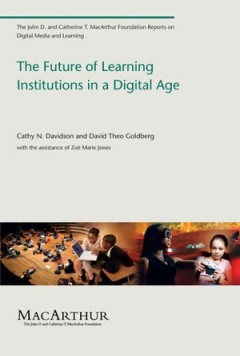
The Future of Learning Institutions in a Digital Age
In this report, Cathy Davidson and David Theo Goldberg focus on the potential for shared and interactive learning made possible by the Internet. They argue that the single most important characteristic of the Internet is its capacity for world-wide community and the limitless exchange of ideas. The Internet brings about a way of learning that is not new or revolutionary but is now the norm for …
- Edition
- -
- ISBN/ISSN
- 9780262513593
- Collation
- -
- Series Title
- -
- Call Number
- 370 DAV f
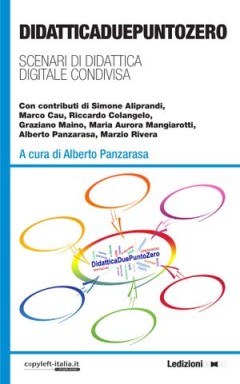
DidatticaDuePuntoZero
The text is born from the collaboration between a network of schools and a group of experts who, for various reasons, have collaborated with them over the years. The rapid change in society and the world of work force the school to rethink itself to maintain its effectiveness. In this text interesting contributions are proposed on didactic innovation, on the opportunities offered by technologie…
- Edition
- -
- ISBN/ISSN
- 9788867055456
- Collation
- -
- Series Title
- -
- Call Number
- -
 Computer Science, Information & General Works
Computer Science, Information & General Works  Philosophy & Psychology
Philosophy & Psychology  Religion
Religion  Social Sciences
Social Sciences  Language
Language  Pure Science
Pure Science  Applied Sciences
Applied Sciences  Art & Recreation
Art & Recreation  Literature
Literature  History & Geography
History & Geography